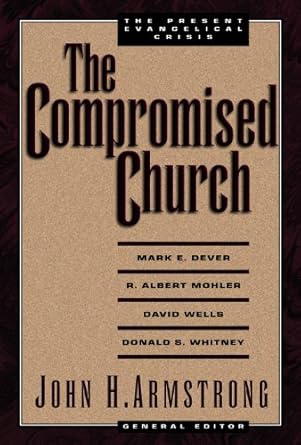A Brief Book Summary from Books At a Glance
by Steve West
Table of Contents
Introduction – David Wells
1 Authority: The Church and the Bible – Edmund Clowney
2 Evangelicals Losing Their Way: The Doctrine of the Trinity – Gerald Bray
3 Church-O-Rama or Corporate Worship – Monte Wilson
4 The Priesthood of All Believers: Reconsidering Every-Member Ministry – Mark Dever
5 Prophets, Priests, and Kings: Biblical Offices – Derke Bergsma
6 The Evangelical Fall from the Means of Grace: The Lord’s Supper – R. Scott Clark
7 The Means of Grace: Baptism – Stephen Wellum
8 Church Discipline: The Missing Mark – R. Albert Mohler, Jr.
9 Preaching: The Decisive Function – Arturo Azurdia III
10 Richard Sibbes and the Union of the Heart with Christ: Lessons on Godliness – Paul Schaeffer Jr.
11 Unity of Doctrine and Devotion – Donald Whitney
12 Evangelical Ministry: The Puritan Contribution – Sinclair Ferguson
13 Evangelicals and the Christian Ministry: A Tragic Loss – John Armstrong
14 Thomas Boston: The Evangelical Minister – Philip Graham Ryken
Summary
Chapter 1: Authority: The Church and the Bible – Edmund Clowney
Evangelicals have seen compromise in liberal theology, but we also need to examine ourselves for it. To avoid compromise, it is essential that we uphold the Word of the Lord as our authority. Today, we are seeing how different views of inspiration affect textual interpretation. God’s written Word is fully authoritative, and it is breathed out by the Spirit. Christ endorsed the Scriptures and had the highest possible view of them. Following Christ, the apostles accepted all of God’s Word as inspired and authoritative; they saw how Scripture was fulfilled in Christ. The authority given to the apostles for ordering the church came from Christ himself. Churches are to be organized and structured according to Scripture, and it is the Holy Spirit who directs the church under Christ. Human systems and procedures must never usurp or restrict the work of the Spirit.
American individualism undermines the corporate nature of the church as a body, as many people look at choosing a church like choosing a club to belong to. In reaction to this hyper-individualism, some have gone too far the other way, endorsing an unbiblical socialism. Christ cares for both individual believers (he calls them by name), and for the church as a whole. God has given men and women different roles in the home and church, and we are to shape our thinking and practice according to his revealed Word. One subtle way to abandon biblical authority is to chart a hermeneutical trajectory that takes us past the apostles and into alignment with contemporary society. . . .
[To continue reading this summary, please see below....]The remainder of this article is premium content. Become a member to continue reading.
Already have an account? Sign In
Buy the books

THE COMPROMISED CHURCH, edited by John H. Armstrong